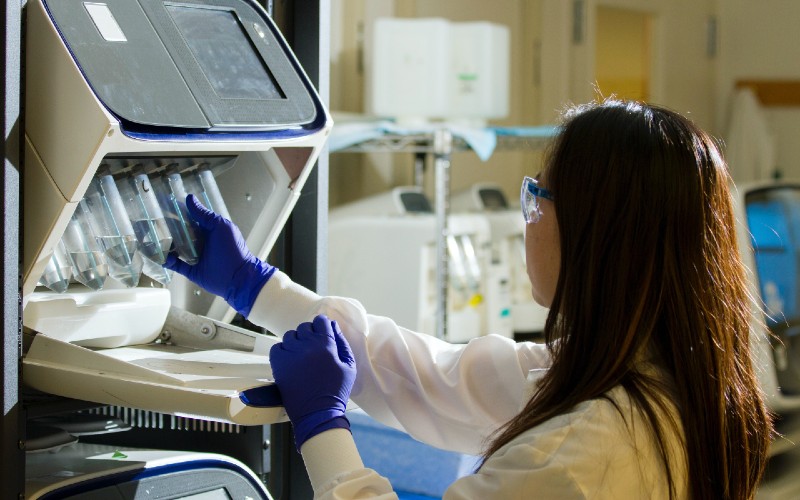Oxford BioDynamics has raised £3.6 million in a share placing.
The listed biotechnology company is developing targeted clinical diagnostic tests including a severity test for COVID-19.
The group, which recently moved into a purpose-built 24,000 sq. ft headquarters in Oxford, has been backed by US-based healthcare fund Armistice Capital Master Fund at a subscription price of 46.5 pence per share, equal to Friday’s closing price.
They represent 8.42% of the issued share capital immediately before the subscription.
Dr Jon Burrows, CEO of Oxford BioDynamics plc, said: “We welcome Armistice as a new investor in the Company. The US pharmaceutical and biotech markets dominate the global arena, supported by experienced and highly knowledgeable specialist investors.
“The travel restrictions caused by the pandemic have made development and commercial launch of products especially challenging and we are proud of what we have achieved to date.”
Commercially, the company has launched EpiSwitch CST – its COVID-19 severity test – in the US and its EpiSwitch Explorer Array Kits to the research community.
The funds will be used by the company as working capital to accelerate the commercialisation of its EpiSwitch CiRT Checkpoint Inhibitor Response Test for cancer.
“These new funds not only provide a solid foundation to support our continuing activities, particularly the imminent launch of our EpiSwitch CiRT Checkpoint Inhibitor Response Test for cancer, but will also enable us to drive our expanded strategy onwards,” added Burrows.
This blood-based predictive test assesses a patient’s likely response to checkpoint inhibitor therapies.
In 2019, in the US, approximately $14 billion was spent on checkpoint inhibitor therapies, with 300,000 patients receiving treatment with these drugs.
However, on average fewer than one third of such patients are likely to benefit from this treatment. A significant proportion will experience an adverse reaction to the therapy, but some of these will see a clinical benefit if they continue after being treated for the reaction.
As such, knowing the likelihood of response will assist doctors in deciding on the appropriate course of treatment, including for patients who show significant adverse reactions but who should be treated and encouraged to continue with checkpoint inhibitor therapies.


